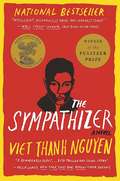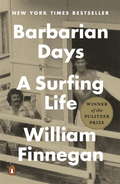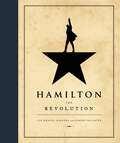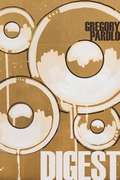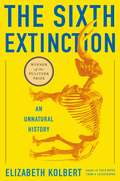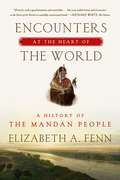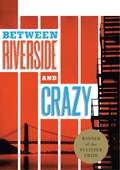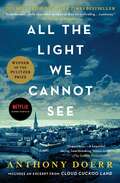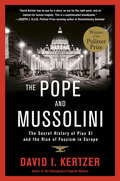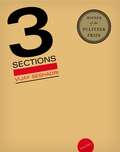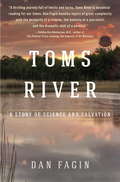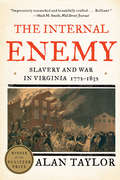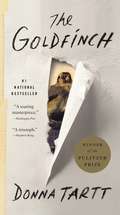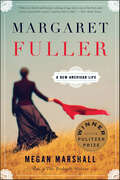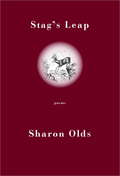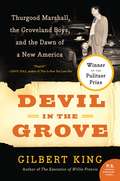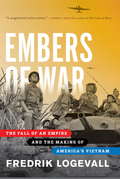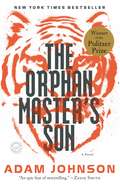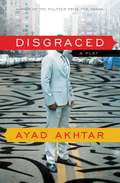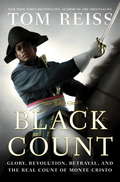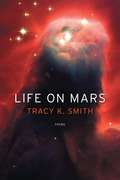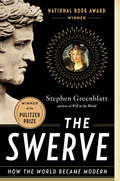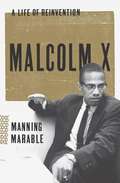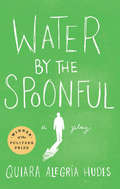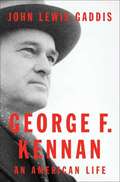Special Collections
Pulitzer Prize Award Winners
Description: Bookshare is pleased to offer the following titles, winners of the Pulitzer Prize Award. Note: Some drama winners are available and are listed under Fiction awards. #award
- Table View
- List View
The Sympathizer
by Viet Thanh Nguyen
Compared by critics to the works of Graham Greene, Denis Johnson, and George Orwell,The Sympathizer is a blistering exploration of identity, politics, and America, wrought in electric prose.
The narrator, a Vietnamese army captain, is a man of divided loyalties, a half-French, half-Vietnamese communist sleeper agent in America after the end of the Vietnam War. A powerful story of love and friendship, and a gripping espionage novel, The Sympathizer examines the legacy of the Vietnam War in literature, film, and the wars we fight today. End matter includes an essay by the author and an interview.
The winner of the 2016 Pulitzer Prize for Fiction
A New York Times Bestseller
Barbarian Days
by William FinneganBarbarian Days is William Finnegan's memoir of an obsession, a complex enchantment. Surfing only looks like a sport. To initiates, it is something else entirely: a beautiful addiction, a demanding course of study, a morally dangerous pastime, a way of life.
Raised in California and Hawaii, Finnegan started surfing as a child. He has chased waves all over the world, wandering for years through the South Pacific, Australia, Asia, Africa. A bookish boy, and then an excessively adventurous young man, he went on to become a distinguished writer and war reporter. Barbarian Days takes us deep into unfamiliar worlds, some of them right under our noses--off the coasts of New York and San Francisco. It immerses the reader in the edgy camaraderie of close male friendships annealed in challenging waves.
Finnegan shares stories of life in a whitesonly gang in a tough school in Honolulu even while his closest friend was a Hawaiian surfer. He shows us a world turned upside down for kids and adults alike by the social upheavals of the 1960s. He details the intricacies of famous waves and his own apprenticeships to them. Youthful folly--he drops LSD while riding huge Honolua Bay, on Maui--is served up with rueful humor. He and a buddy, their knapsacks crammed with reef charts, bushwhack through Polynesia. They discover, while camping on an uninhabited island in Fiji, one of the world's greatest waves.
As Finnegan's travels take him ever farther afield, he becomes an improbable anthropologist: unpicking the picturesque simplicity of a Samoan fishing village, dissecting the sexual politics of Tongan interactions with Americans and Japanese, navigating the Indonesian black market while nearly succumbing to malaria. Throughout, he surfs, carrying readers with him on rides of harrowing, unprecedented lucidity.
Barbarian Days is an old-school adventure story, an intellectual autobiography, a social history, a literary road movie, and an extraordinary exploration of the gradual mastering of an exacting, little understood art. Today, Finnegan's surfing life is undiminished. Frantically juggling work and family, he chases his enchantment through Long Island ice storms and obscure corners of Madagascar.
**Winner of the 2016 Pulitzer Prize for Autobiography**
Hamilton
by Lin-Manuel Miranda and Jeremy MccarterWinner of the 2016 Pulitzer Prize for Drama
Lin-Manuel Miranda's groundbreaking musical Hamilton is as revolutionary as its subject, the poor kid from the Caribbean who fought the British, defended the Constitution, and helped to found the United States. Fusing hip-hop, pop, R&B, and the best traditions of theater, this once-in-a-generation show broadens the sound of Broadway, reveals the storytelling power of rap, and claims our country's origins for a diverse new generation. HAMILTON: THE REVOLUTION gives readers an unprecedented view of both revolutions, from the only two writers able to provide it. Miranda, along with Jeremy McCarter, a cultural critic and theater artist who was involved in the project from its earliest stages--"since before this was even a show," according to Miranda--traces its development from an improbable performance at the White House to its landmark opening night on Broadway six years later. In addition, Miranda has written more than 200 funny, revealing footnotes for his award-winning libretto, the full text of which is published here. Their account features photos by the renowned Frank Ockenfels and veteran Broadway photographer, Joan Marcus; exclusive looks at notebooks and emails; interviews with Questlove, Stephen Sondheim, leading political commentators, and more than 50 people involved with the production; and multiple appearances by President Obama himself. The book does more than tell the surprising story of how a Broadway musical became a national phenomenon: It demonstrates that America has always been renewed by the brash upstarts and brilliant outsiders, the men and women who don't throw away their shot.
Advisory: Bookshare has learned that this book offers only partial accessibility. We have kept it in the collection because it is useful for some of our members. To explore further access options with us, please contact us through the Book Quality link on the right sidebar. Benetech is actively working on projects to improve accessibility issues such as these.
A New York Times Bestseller
Digest
by Gregory PardloFrom Epicurus to Sam Cooke, the Daily News to Roots, Digest draws from the present and the past to form an intellectual, American identity. In poems that forge their own styles and strategies, we experience dialogues between the written word and other art forms. Within this dialogue we hear Ben Jonson, we meet police K-9s, and we find children negotiating a sense of the world through a father’s eyes and through their own.
Winner of the 2015 Pulitzer Prize for Poetry
The Sixth Extinction
by Elizabeth KolbertA major book about the future of the world, blending intellectual and natural history and field reporting into a powerful account of the mass extinction unfolding before our eyes.
Over the last half a billion years, there have been five mass extinctions, when the diversity of life on earth suddenly and dramatically contracted. Scientists around the world are currently monitoring the sixth extinction, predicted to be the most devastating extinction event since the asteroid impact that wiped out the dinosaurs. This time around, the cataclysm is us.
In The Sixth Extinction, two-time winner of the National Magazine Award and New Yorker writer Elizabeth Kolbert draws on the work of scores of researchers in half a dozen disciplines, accompanying many of them into the field: geologists who study deep ocean cores, botanists who follow the tree line as it climbs up the Andes, marine biologists who dive off the Great Barrier Reef. She introduces us to a dozen species, some already gone, others facing extinction, including the Panamian golden frog, staghorn coral, the great auk, and the Sumatran rhino.
Through these stories, Kolbert provides a moving account of the disappearances occurring all around us and traces the evolution of extinction as concept, from its first articulation by Georges Cuvier in revolutionary Paris up through the present day. The sixth extinction is likely to be mankind's most lasting legacy; as Kolbert observes, it compels us to rethink the fundamental question of what it means to be human.
Pulitzer Prize Winner
Encounters At The Heart Of The World
by Elizabeth A. FennWinner of the 2015 Pulitzer Prize for History
Encounters at the Heart of the World concerns the Mandan Indians, iconic Plains people whose teeming, busy towns on the upper Missouri River were for centuries at the center of the North American universe. We know of them mostly because Lewis and Clark spent the winter of 1804-1805 with them, but why don't we know more? Who were they really? In this extraordinary book, Elizabeth A. Fenn retrieves their history by piecing together important new discoveries in archaeology, anthropology, geology, climatology, epidemiology, and nutritional science. Her boldly original interpretation of these diverse research findings offers us a new perspective on early American history, a new interpretation of the American past.
By 1500, more than twelve thousand Mandans were established on the northern Plains, and their commercial prowess, agricultural skills, and reputation for hospitality became famous. Recent archaeological discoveries show how these Native American people thrived, and then how they collapsed. The damage wrought by imported diseases like smallpox and the havoc caused by the arrival of horses and steamboats were tragic for the Mandans, yet, as Fenn makes clear, their sense of themselves as a people with distinctive traditions endured.
A riveting account of Mandan history, landscapes, and people, Fenn's narrative is enriched and enlivened not only by science and research but by her own encounters at the heart of the world.
Between Riverside and Crazy
by Stephen Adly Guirgis"Guirgis, like other storytellers who explore the sacred and profane, is most interested in how grace transforms us."--The New YorkerWritten with humor, tenderness, grit, and wonderment by acclaimed playwright Stephen Adly Guirgis, Between Riverside and Crazy is an extraordinary new play: a dark comedy about a man trying to maintain control as the world unravels around him.City Hall is demanding more than his signature, the Landlord wants him out, the liquor store is closed, and the Church won't leave him alone. As ex-cop and recent widower Walter "Pops" Washington struggles to hold on to one of the last great rent-stabilized apartments on Riverside Drive, he must also contend with old wounds, new houseguests, and a final ultimatum. It seems the old days are dead and gone -- after a lifetime living between Riverside and Crazy.Stephen Adly Guirgis' other plays include The Motherfucker with the Hat, Jesus Hopped the 'A' Train, Our Lady of 121st Street, In Arabia We'd All Be Kings, The Last Days of Judas Iscariot, The Little Flower of East Orange, Den of Thieves, Race Religion Politics, and Dominica: The Fat Ugly Ho. His play Between Riverside and Crazy won the Pulitzer Prize for Drama in 2015. He is a former co-artistic director of LABryinth Theater Company. He received the Yale Wyndham-Campbell Prize, a PEN/Laura Pels Award, a Whiting Award and a fellowship from TCG in 2004.
All the Light We Cannot See
by Anthony Doerr*NOW A NETFLIX LIMITED SERIES—from producer and director Shawn Levy (Stranger Things) starring Mark Ruffalo, Hugh Laurie, and newcomer Aria Mia Loberti* Winner of the Pulitzer Prize and National Book Award finalist, the beloved instant New York Times bestseller and New York Times Book Review Top 10 Book about a blind French girl and a German boy whose paths collide in occupied France as both try to survive the devastation of World War II.Marie-Laure lives with her father in Paris near the Museum of Natural History where he works as the master of its thousands of locks. When she is six, Marie-Laure goes blind and her father builds a perfect miniature of their neighborhood so she can memorize it by touch and navigate her way home. When she is twelve, the Nazis occupy Paris, and father and daughter flee to the walled citadel of Saint-Malo, where Marie-Laure&’s reclusive great uncle lives in a tall house by the sea. With them they carry what might be the museum&’s most valuable and dangerous jewel. In a mining town in Germany, the orphan Werner grows up with his younger sister, enchanted by a crude radio they find. Werner becomes an expert at building and fixing these crucial new instruments, a talent that wins him a place at a brutal academy for Hitler Youth, then a special assignment to track the Resistance. More and more aware of the human cost of his intelligence, Werner travels through the heart of the war and, finally, into Saint-Malo, where his story and Marie-Laure&’s converge. Doerr&’s &“stunning sense of physical detail and gorgeous metaphors&” (San Francisco Chronicle) are dazzling. Deftly interweaving the lives of Marie-Laure and Werner, he illuminates the ways, against all odds, people try to be good to one another. Ten years in the writing, All the Light We Cannot See is a magnificent, deeply moving novel from a writer &“whose sentences never fail to thrill&” (Los Angeles Times).
The Pope and Mussolini
by David I. KertzerFrom National Book Award finalist David I. Kertzer comes the gripping story of Pope Pius XI's secret relations with Italian dictator Benito Mussolini. This groundbreaking work, based on seven years of research in the Vatican and Fascist archives, including reports from Mussolini's spies inside the highest levels of the Church, will forever change our understanding of the Vatican's role in the rise of Fascism in Europe. The Pope and Mussolini tells the story of two men who came to power in 1922, and together changed the course of twentieth-century history. In most respects, they could not have been more different. One was scholarly and devout, the other thuggish and profane. Yet Pius XI and "Il Duce" had many things in common. They shared a distrust of democracy and a visceral hatred of Communism. Both were prone to sudden fits of temper and were fiercely protective of the prerogatives of their office. ("We have many interests to protect," the Pope declared, soon after Mussolini seized control of the government in 1922.) Each relied on the other to consolidate his power and achieve his political goals. In a challenge to the conventional history of this period, in which a heroic Church does battle with the Fascist regime, Kertzer shows how Pius XI played a crucial role in making Mussolini's dictatorship possible and keeping him in power. In exchange for Vatican support, Mussolini restored many of the privileges the Church had lost and gave in to the pope's demands that the police enforce Catholic morality. Yet in the last years of his life--as the Italian dictator grew ever closer to Hitler--the pontiff's faith in this treacherous bargain started to waver. With his health failing, he began to lash out at the Duce and threatened to denounce Mussolini's anti-Semitic racial laws before it was too late. Horrified by the threat to the Church-Fascist alliance, the Vatican's inner circle, including the future Pope Pius XII, struggled to restrain the headstrong pope from destroying a partnership that had served both the Church and the dictator for many years. The Pope and Mussolini brims with memorable portraits of the men who helped enable the reign of Fascism in Italy: Father Pietro Tacchi Venturi, Pius's personal emissary to the dictator, a wily anti-Semite known as Mussolini's Rasputin; Victor Emmanuel III, the king of Italy, an object of widespread derision who lacked the stature--literally and figuratively--to stand up to the domineering Duce; and Cardinal Secretary of State Eugenio Pacelli, whose political skills and ambition made him Mussolini's most powerful ally inside the Vatican, and positioned him to succeed the pontiff as the controversial Pius XII, whose actions during World War II would be subject for debate for decades to come. With the recent opening of the Vatican archives covering Pius XI's papacy, the full story of the Pope's complex relationship with his Fascist partner can finally be told. Vivid, dramatic, with surprises at every turn, The Pope and Mussolini is history writ large and with the lightning hand of truth. Advance praise for The Pope and Mussolini "David Kertzer has an eye for a story, an ear for the right word, and an instinct for human tragedy. They all come together in The Pope and Mussolini to document, with meticulous scholarship and novelistic flair, the complicity between Pius XI and the Fascist leader in creating an unholy alliance between the Vatican and a totalitarian government rooted in corruption and brutality. This is a sophisticated blockbuster."--Joseph J. Ellis, Pulitzer Prize-winning author of Revolutionary Summer
3 Sections
by Vijay SeshadriThe long-awaited third poetry book by Vijay Seshadri, "one of the most respected poets working in America today" (Time Out New York). Vijay Seshadri's new poetry is assured and expert, his line as canny as ever. In an array of poetic forms from the rhyming lyric to the philosophical meditation to the prose essay, 3 Sections confronts perplexing divisions of contemporary life-a wayward history, an indeterminate future, and a present condition of wanting to outthink time. This is an extraordinary book, witty and vivacious, by one of America's best poets.
Winner of the 2014 Pulitzer Prize in Poetry
Toms River
by Dan Fagin
The riveting true story of a small town ravaged by industrial pollution, Toms River melds hard-hitting investigative reporting, a fascinating scientific detective story, and an unforgettable cast of characters into a sweeping narrative in the tradition of A Civil Action, The Emperor of All Maladies, and The Immortal Life of Henrietta Lacks.
One of New Jersey's seemingly innumerable quiet seaside towns, Toms River became the unlikely setting for a decades-long drama that culminated in 2001 with one of the largest legal settlements in the annals of toxic dumping.
A town that would rather have been known for its Little League World Series champions ended up making history for an entirely different reason: a notorious cluster of childhood cancers scientifically linked to local air and water pollution.
For years, large chemical companies had been using Toms River as their private dumping ground, burying tens of thousands of leaky drums in open pits and discharging billions of gallons of acid-laced wastewater into the town's namesake river.
In an astonishing feat of investigative reporting, prize-winning journalist Dan Fagin recounts the sixty-year saga of rampant pollution and inadequate oversight that made Toms River a cautionary example for fast-growing industrial towns from South Jersey to South China.
He tells the stories of the pioneering scientists and physicians who first identified pollutants as a cause of cancer, and brings to life the everyday heroes in Toms River who struggled for justice: a young boy whose cherubic smile belied the fast-growing tumors that had decimated his body from birth; a nurse who fought to bring the alarming incidence of childhood cancers to the attention of authorities who didn't want to listen; and a mother whose love for her stricken child transformed her into a tenacious advocate for change.
A gripping human drama rooted in a centuries-old scientific quest, Toms River is a tale of dumpers at midnight and deceptions in broad daylight, of corporate avarice and government neglect, and of a few brave individuals who refused to keep silent until the truth was exposed.
Winner of the Pulitzer Prize
Winner of The New York Public Library's Helen Bernstein Book Award
A New York Times Bestseller
The Internal Enemy
by Alan TaylorThis searing story of slavery and freedom in the Chesapeake by a Pulitzer Prize-winning historian reveals the pivot in the nation's path between the founding and civil war.
Frederick Douglass recalled that slaves living along Chesapeake Bay longingly viewed sailing ships as "freedom's swift-winged angels." In 1813 those angels appeared in the bay as British warships coming to punish the Americans for declaring war on the empire. Over many nights, hundreds of slaves paddled out to the warships seeking protection for their families from the ravages of slavery. The runaways pressured the British admirals into becoming liberators. As guides, pilots, sailors, and marines, the former slaves used their intimate knowledge of the countryside to transform the war. They enabled the British to escalate their onshore attacks and to capture and burn Washington, D.C. Tidewater masters had long dreaded their slaves as "an internal enemy." By mobilizing that enemy, the war ignited the deepest fears of Chesapeake slaveholders. It also alienated Virginians from a national government that had neglected their defense. Instead they turned south, their interests aligning more and more with their section. In 1820 Thomas Jefferson observed of sectionalism: "Like a firebell in the night [it] awakened and filled me with terror. I considered it at once the knell of the union." The notes of alarm in Jefferson's comment speak of the fear aroused by the recent crisis over slavery in his home state. His vision of a cataclysm to come proved prescient. Jefferson's startling observation registered a turn in the nation's course, a pivot from the national purpose of the founding toward the threat of disunion. Drawn from new sources, Alan Taylor's riveting narrative re-creates the events that inspired black Virginians, haunted slaveholders, and set the nation on a new and dangerous course.
Winner of the 2014 Pulitzer Prize for History
The Goldfinch
by Donna TarttTheo Decker, a 13-year-old New Yorker, miraculously survives an accident that kills his mother.
Abandoned by his father, Theo is taken in by the family of a wealthy friend.
Bewildered by his strange new home on Park Avenue, disturbed by schoolmates who don't know how to talk to him, and tormented above all by his longing for his mother, he clings to the one thing that reminds him of her: a small, mysteriously captivating painting that ultimately draws Theo into the underworld of art.
As an adult, Theo moves silkily between the drawing rooms of the rich and the dusty labyrinth of an antiques store where he works. He is alienated and in love--and at the center of a narrowing, ever more dangerous circle.
The Goldfinch is a mesmerizing, stay-up-all-night and tell-all-your-friends triumph, an old-fashioned story of loss and obsession, survival and self-invention, and the ruthless machinations of fate.
Winner of the Pulitzer Prize
Margaret Fuller
by Megan MarshallWinner of the Pulitzer Prize for BiographyFrom an early age, Margaret Fuller provoked and dazzled New England’s intellectual elite. Her famous Conversations changed women’s sense of how they could think and live; her editorship of the Transcendentalist literary journal the Dial shaped American Romanticism. Now, Megan Marshall, whose acclaimed The Peabody Sisters “discovered” three fascinating women, has done it again: no biography of Fuller has made her ideas so alive or her life so moving. Marshall tells the story of how Fuller, tired of Boston, accepted Horace Greeley’s offer to be the New-York Tribune’s front-page columnist. The move unleashed a crusading concern for the urban poor and the plight of prostitutes, and a late-in-life hunger for passionate experience. In Italy as a foreign correspondent, Fuller took a secret lover, a young officer in the Roman Guard; she wrote dispatches on the brutal 1849 Siege of Rome; and she gave birth to a son. Yet, when all three died in a shipwreck off Fire Island shortly after Fuller’s fortieth birthday, the sense and passion of her life’s work were eclipsed by tragedy and scandal. Marshall’s inspired account brings an American heroine back to indelible life.
Stag's Leap
by Sharon OldsIn this wise and intimate new book, Sharon Olds tells the story of a divorce, embracing strands of love, sex, sorrow, memory, and new freedom. As she carries us through the seasons when her marriage was ending, Olds opens her heart to the reader, sharing the feeling of invisibility that comes when we are no longer standing in love's sight; the surprising physical bond that still exists between a couple during parting; the loss of everything from her husband's smile to the set of his hip; the radical change in her sense of place in the world. Olds is naked before us, curious and brave and even generous toward the man who was her mate for thirty years and who now loves another woman. As she writes in the remarkable "Stag's Leap," "When anyone escapes, my heart / leaps up. Even when it's I who am escaped from, / I am half on the side of the leaver." Olds's propulsive poetic line and the magic of her imagery are as lively as ever, and there is a new range to the music--sometimes headlong, sometimes contemplative and deep. Her unsparing approach to both pain and love makes this one of the finest, most powerful books of poetry she has yet given us.
Devil in the Grove
by Gilbert KingArguably the most important American lawyer of the twentieth century, Thurgood Marshall was on the verge of bringing the landmark suit Brown v. Board of Education before the U.S. Supreme Court when he became embroiled in an explosive and deadly case that threatened to change the course of the civil rights movement and cost him his life. In 1949, Florida's orange industry was booming, and citrus barons got rich on the backs of cheap Jim Crow labor. To maintain order and profits, they turned to Willis V. McCall, a violent sheriff who ruled Lake County with murderous resolve. When a white seventeen-year-old Groveland girl cried rape, McCall was fast on the trail of four young blacks who dared to envision a future for themselves beyond the citrus groves. By day's end, the Ku Klux Klan had rolled into town, burning the homes of blacks to the ground and chasing hundreds into the swamps, hell-bent on lynching the young men who came to be known as "the Groveland Boys." And so began the chain of events that would bring Thurgood Marshall, the man known as "Mr. Civil Rights," into the deadly fray. Associates thought it was suicidal for him to wade into the "Florida Terror" at a time when he was irreplaceable to the burgeoning civil rights movement, but the lawyer would not shrink from the fight-not after the Klan had murdered one of Marshall's NAACP associates involved with the case and Marshall had endured continual threats that he would be next. Drawing on a wealth of never-before-published material, including the FBI's unredacted Groveland case files, as well as unprecedented access to the NAACP's Legal Defense Fund files, King shines new light on this remarkable civil rights crusader, setting his rich and driving narrative against the heroic backdrop of a case that U.S. Supreme Court justice Robert Jackson decried as "one of the best examples of one of the worst menaces to American justice."
Embers of War
by Fredrik LogevallThe struggle for Vietnam occupies a central place in the history of the twentieth century. Fought over a period of three decades, the conflict drew in all the world's powers and saw two of them--first France, then the United States--attempt to subdue the revolutionary Vietnamese forces. For France, the defeat marked the effective end of her colonial empire, while for America the war left a gaping wound in the body politic that remains open to this day. How did it happen? Tapping into newly accessible diplomatic archives in several nations and making full use of the published literature, distinguished scholar Fredrik Logevall traces the path that led two Western nations to lose their way in Vietnam. Embers of War opens in 1919 at the Versailles Peace Conference, where a young Ho Chi Minh tries to deliver a petition for Vietnamese independence to President Woodrow Wilson. It concludes in 1959, with a Viet Cong ambush on an outpost outside Saigon and the deaths of two American officers whose names would be the first to be carved into the black granite of the Vietnam Veterans Memorial. In between come years of political, military, and diplomatic maneuvering and miscalculation, as leaders on all sides embark on a series of stumbles that makes an eminently avoidable struggle a bloody and interminable reality. Logevall takes us inside the councils of war--and gives us a seat at the conference tables where peace talks founder. He brings to life the bloodiest battles of France's final years in Indochina--and shows how from an early point, a succession of American leaders made disastrous policy choices that put America on its own collision course with history: Harry Truman's fateful decision to reverse Franklin Delano Roosevelt's policy and acknowledge France's right to return to Indochina after World War II; Dwight Eisenhower's strenuous efforts to keep Paris in the fight and his escalation of U.S. involvement in the aftermath of the humiliating French defeat at Dien Bien Phu; and the curious turnaround in Senator John F. Kennedy's thinking that would lead him as president to expand that commitment, despite his publicly stated misgivings about Western intervention in Southeast Asia. An epic story of wasted opportunities and tragic miscalculations, featuring an extraordinary cast of larger-than-life characters, Embers of War delves deep into the historical record to provide hard answers to the unanswered questions surrounding the demise of one Western power in Vietnam and the arrival of another. This book will become the definitive chronicle of the struggle's origins for years to come.Advance praise for Embers of War "Fredrik Logevall has gleaned from American, French, and Vietnamese sources a splendid account of France's nine-year war in Indochina and the story of how the American statesmen of the period allowed this country to be drawn into the quagmire."--Neil Sheehan, author of A Bright Shining Lie, winner of the Pulitzer Prize and the National Book Award "Fredrik Logevall is a wonderful writer and historian. In his new book on the origins of the American war in Vietnam, he gives a fascinating and dramatic account of the French war and its aftermath, from the perspectives of the French, the Vietnamese, and the Americans. Using previously untapped sources and a deep knowledge of diplomatic history, Logevall shows to devastating effect how America found itself on the road to Vietnam."--Frances FitzGerald, author of Fire in the Lake, winner of the Pulitzer Prize and the National Book Award
The Orphan Master's Son
by Adam JohnsonPak Jun Do is the haunted son of a lost mother—a singer “stolen” to Pyongyang—and an influential father who runs a work camp for orphans. Superiors in the North Korean state soon recognize the boy’s loyalty and keen instincts. Considering himself “a humble citizen of the greatest nation in the world,” Jun Do rises in the ranks. He becomes a professional kidnapper who must navigate the shifting rules, arbitrary violence, and baffling demands of his overlords in order to stay alive. Driven to the absolute limit of what any human being could endure, he boldly takes on the treacherous role of rival to Kim Jong Il in an attempt to save the woman he loves, Sun Moon, a legendary actress “so pure, she didn’t know what starving people looked like.”
Part breathless thriller, part story of innocence lost, part story of romantic love, The Orphan Master’s Son is also a riveting portrait of a world heretofore hidden from view: a North Korea rife with hunger, corruption, and casual cruelty but also camaraderie, stolen moments of beauty, and love.
Disgraced
by Ayad Akhtar"Sparkling and combustible" (Bloomberg Businessweek), "DISGRACED rubs all kinds of unexpected raw spots with intelligence and humor" (Newsday). "In dialogue that bristles with wit and intelligence, Akhtar puts contemporary attitudes toward religion under a microscope, revealing how tenuous self-image can be for people born into one way of being who have embraced another.... Everyone has been told that politics and religion are two subjects that should be off-limits at social gatherings. But watching these characters rip into these forbidden topics, there's no arguing that they make for ear-tickling good theater" (New York Times). "Add a liberal flow of alcohol and a couple of major secrets suddenly revealed, and you've got yourself one dangerous dinner party" (Associated Press).
The Black Count
by Tom ReissHere is the remarkable true story of the real Count of Monte Cristo - a stunning feat of historical sleuthing that brings to life the forgotten hero who inspired such classics as The Count of Monte Cristo and The Three Musketeers.The real-life protagonist of The Black Count, General Alex Dumas, is a man almost unknown today yet with a story that is strikingly familiar, because his son, the novelist Alexandre Dumas, used it to create some of the best loved heroes of literature.Yet, hidden behind these swashbuckling adventures was an even more incredible secret: the real hero was the son of a black slave -- who rose higher in the white world than any man of his race would before our own time. Born in Saint-Domingue (now Haiti), Alex Dumas was briefly sold into bondage but made his way to Paris where he was schooled as a sword-fighting member of the French aristocracy. Enlisting as a private, he rose to command armies at the height of the Revolution, in an audacious campaign across Europe and the Middle East - until he met an implacable enemy he could not defeat.The Black Count is simultaneously a riveting adventure story, a lushly textured evocation of 18th-century France, and a window into the modern world's first multi-racial society. But it is also a heartbreaking story of the enduring bonds of love between a father and son. From the Hardcover edition.
Life on Mars
by Tracy K. SmithLife on Mars imagines a soundtrack for the universe to accompany the discoveries, failures, and oddities of human existence. In these brilliant new poems, Tracy K. Smith envisions a sci-fi future sucked clean of any real dangers, contemplates the dark matter that keeps people both close and distant, and revisits the kitschy concepts like "love" and "illness" now relegated to the Museum of Obsolescence.
Pulitzer Prize Winner
The Swerve
by Stephen GreenblattWinner of the Pulitzer Prize for Nonfiction • Winner of the National Book Award • New York Times Bestseller Renowned scholar Stephen Greenblatt brings the past to vivid life in what is at once a supreme work of scholarship, a literary page-turner, and a thrilling testament to the power of the written word. In the winter of 1417, a short, genial, cannily alert man in his late thirties plucked a very old manuscript off a dusty shelf in a remote monastery, saw with excitement what he had discovered, and ordered that it be copied. He was Poggio Bracciolini, the greatest book hunter of the Renaissance. His discovery, Lucretius’ ancient poem On the Nature of Things, had been almost entirely lost to history for more than a thousand years. It was a beautiful poem of the most dangerous ideas: that the universe functions without the aid of gods, that religious fear is damaging to human life, that pleasure and virtue are not opposites but intertwined, and that matter is made up of very small material particles in eternal motion, randomly colliding and swerving in new directions. Its return to circulation changed the course of history. The poem’s vision would shape the thought of Galileo and Freud, Darwin and Einstein, and—in the hands of Thomas Jefferson—leave its trace on the Declaration of Independence. From the gardens of the ancient philosophers to the dark chambers of monastic scriptoria during the Middle Ages to the cynical, competitive court of a corrupt and dangerous pope, Greenblatt brings Poggio’s search and discovery to life in a way that deepens our understanding of the world we live in now. “An intellectually invigorating, nonfiction version of a Dan Brown–like mystery-in-the-archives thriller.” —Boston Globe
Malcolm X
by Manning MarableSelected by The New York Times Book Review as a Notable Book of the Year Years in the making-the definitive biography of the legendary black activist. Of the great figure in twentieth-century American history perhaps none is more complex and controversial than Malcolm X. Constantly rewriting his own story, he became a criminal, a minister, a leader, and an icon, all before being felled by assassins' bullets at age thirty-nine. Through his tireless work and countless speeches he empowered hundreds of thousands of black Americans to create better lives and stronger communities while establishing the template for the self-actualized, independent African American man. In death he became a broad symbol of both resistance and reconciliation for millions around the world. Manning Marable's new biography of Malcolm is a stunning achievement. Filled with new information and shocking revelations that go beyond the Autobiography, Malcolm X unfolds a sweeping story of race and class in America, from the rise of Marcus Garvey and the Ku Klux Klan to the struggles of the civil rights movement in the fifties and sixties. Reaching into Malcolm's troubled youth, it traces a path from his parents' activism through his own engagement with the Nation of Islam, charting his astronomical rise in the world of Black Nationalism and culminating in the never-before-told true story of his assassination. Malcolm X will stand as the definitive work on one of the most singular forces for social change, capturing with revelatory clarity a man who constantly strove, in the great American tradition, to remake himself anew.
Water by the Spoonful
by Quiara Alegría Hudes"Hudes brilliantly taps into both the family ties that bind as well as the alternative cyber universe. . . . Her dialogue is bright, her characters, compelling. . . . It's only when cyber meets the real world that anger gives way to forgiveness and resistance becomes redemption; the heart of the play opens up and the waters flow freely."-Variety"A very funny, warm and, yes, uplifting play with characters that are vivid, vital and who stay with you long after the play is over."-Hartford Courant"Ms. Hudes possesses a confident and arresting voice."-The New York TimesWinner of the 2012 Pulitzer Prize for Drama, Quiara Alegría Hudes's drama is a heartbreaking, funny, and inspiring account of the search for family in both conventional and unconventional places.Somewhere in Philadelphia, Elliot has returned from Iraq and is struggling to find his place in the world, while somewhere in a chat room, recovering addicts forge an unbreakable bond of support and love. The boundaries of family and friendship are stretched across continents and cyberspace as birth families splinter and online families collide.Water by the Spoonful is the second installment in a trilogy of plays that follow Elliot, a young veteran of the Iraq War. The trilogy's first play, Elliot, A Soldier's Fugue, was a finalist for the 2007 Pulitzer Prize and will be published by Theatre Communications Group concurrently with Water by the Spoonful. The trilogy's final play, The Happiest Song Plays Last, premiered in April 2012 at Chicago's renowned The Goodman Theatre.
George F. Kennan
by John Lewis GaddisSelected by The New York Times Book Review as a Notable Book of the Year. Drawing on extensive interviews with George Kennan and exclusive access to his archives, an eminent scholar of the Cold War delivers a revelatory biography of its troubled mastermind. In the late 1940s, George Kennan wrote two documents, the "Long Telegram" and the "X Article," which set forward the strategy of containment that would define U.S. policy toward the Soviet Union for the next four decades. This achievement alone would qualify him as the most influential American diplomat of the Cold War era. But he was also an architect of the Marshall Plan, a prizewinning historian, and would become one of the most outspoken critics of American diplomacy, politics, and culture during the last half of the twentieth century. Now the full scope of Kennan's long life and vast influence is revealed by one of today's most important Cold War scholars. Yale historian John Lewis Gaddis began this magisterial history almost thirty years ago, interviewing Kennan frequently and gaining complete access to his voluminous diaries and other personal papers. So frank and detailed were these materials that Kennan and Gaddis agreed that the book would not appear until after Kennan's death. It was well worth the wait: the journals give this book a breathtaking candor and intimacy that match its century-long sweep. We see Kennan's insecurity as a Midwesterner among elites at Princeton, his budding dissatisfaction with authority and the status quo, his struggles with depression, his gift for satire, and his sharp insights on the policies and people he encountered. Kennan turned these sharp analytical gifts upon himself, even to the point of regularly recording dreams. The result is a remarkably revealing view of how this greatest of Cold War strategists came to doubt his strategy and always doubted himself. This is a landmark work of history and biography that reveals the vast influence and rich inner landscape of a life that both mirrored and shaped the century it spanned.
Pulitzer Prize winner
